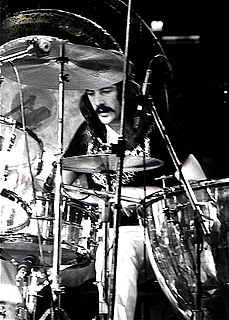A Quote by John Bonham
I have no qualm about the quality of the contemporary repertory.
Quote Topics
Related Quotes
So what is design all about? It [exists to] decrease the amount of vulgarity in the world ... to make the world a better place to be. It doesn’t have to be one style. We’re not talking about style, we’re talking about quality. Style is tangible, quality is intangible. I am talking about giving to everything that surrounds us a level of quality.
I have a British voice and a rather formal one at that, having been brought up in post-WWII Britain. My voice is perfectly suited to the sort of book I write, I think. It would not fit a contemporary, besides which I do not know enough about the contemporary world to write convincingly or comfortably about it!
Contemporary art and manga - what is the same about them? Nothing, right? The manga industry has a lot of talented people, but contemporary art works on more of a solitary model. No one embarks on collaboration in contemporary art in order to make money. But in the manga world, everyone is invested in collaboration. The most important point is that the manga industry constantly encourages new creations and creators.




































